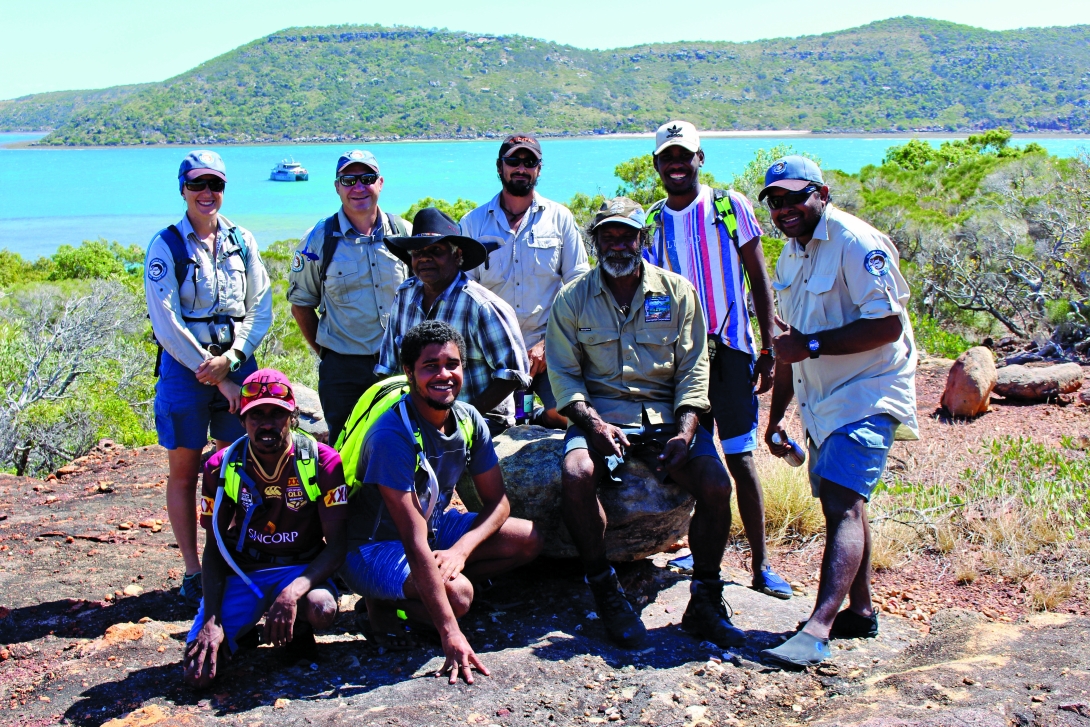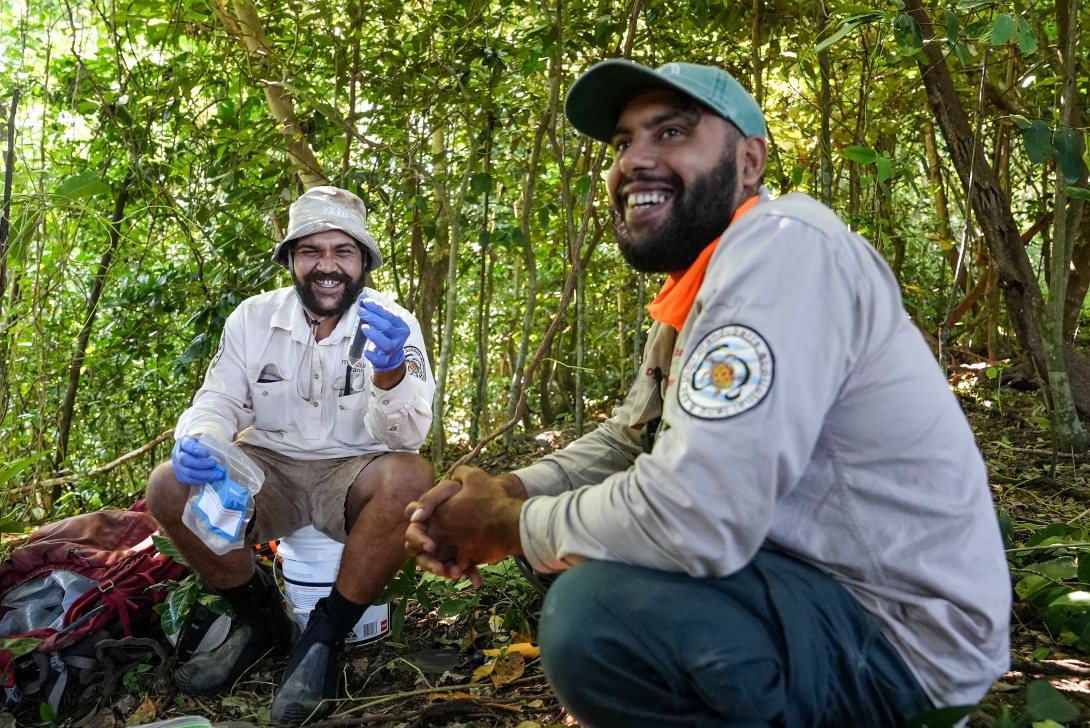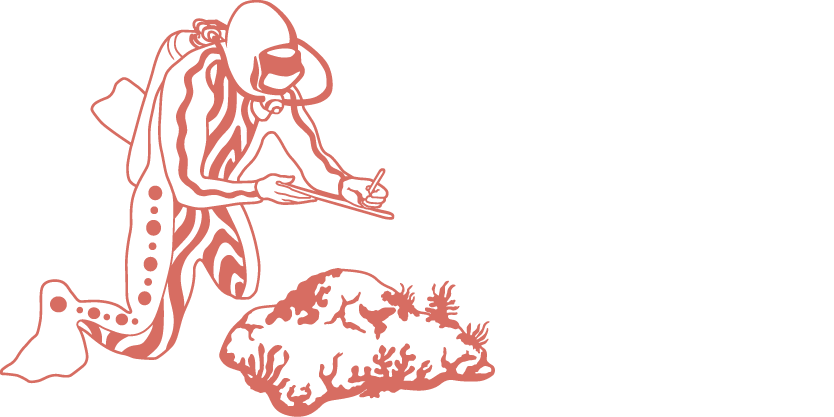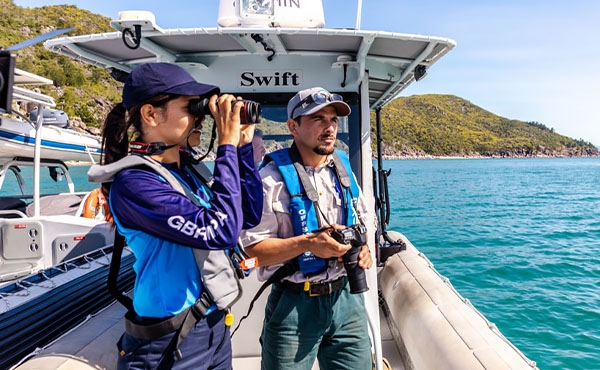The traditional use of marine resources (traditional use) is undertaken by First Nations peoples, who are the Traditional Owners and Custodians of the Reef and its Catchment. As recognised in the Native Title Act 1993 (Cth), they hold inherent rights, interests and obligations to protect and care for their Country as they have done for longer than 60,000 years (Chapter 4). More than 70 Traditional Owner groups have knowledge and connection to the Reef and practice traditional activities that include fishing, collecting, hunting or harvesting, and looking after cultural and heritage places.1981

One of the most effective formal approaches in managing traditional use is the establishment of Traditional Use of Marine Resources Agreements. These are statutory agreements under the Great Barrier Reef Marine Park Regulations 2019 (Cth) and are recognised in the Great Barrier Reef Marine Park Zoning Plan 2003 (Cth). They are a unique partnership agreement that recognises and supports the native title rights and interests of the Traditional Owner groups, who hold an inherent spiritual connection to the Reef. Agreements such as the Traditional Use of Marine Resources Agreements and Indigenous Land Use Agreements promote sustainable use of key species and ecosystems by incorporating cultural lore and contemporary science. Groups may self-manage and impose restrictions on take of certain species, such as dugongs and green turtles, through the agreements. The agreements also provide mechanisms and support for other activities conducted by Traditional Owner groups, including monitoring, education, as well as community and compliance activities within their Sea Country.
Traditional Use of Marine Resources Agreements have assisted the management of Sea Country
Ten Traditional Use of Marine Resources Agreements and one Indigenous Land Use Agreement are currently in place, covering 46 per cent of the Region’s coastline (an increase from 25 per cent in 2019). Another Indigenous Land Use Agreement lies offshore from the mainland coast. The Reef Authority has commenced new partnerships to develop four new Traditional Owner-led agreements and a new Plan of Management for the Southern region of the Marine Park is being co-designed with four Traditional Owner groups.
The Reef planning system 11 is trying to better understand Indigenous knowledges, processes and institutions and to make better connections with state-based planning. However, Indigenous knowledge systems have not yet been effectively incorporated into decision-making.1982 Numerous plans and strategies identify actions to keep Indigenous heritage, including traditional use, strong, safe and healthy such as the Aboriginal and Torres Strait Islander Heritage Strategy. The planning and governance systems for the Reef 11 are closely intertwined in addressing traditional use. The Reef 2050 Traditional Owner Implementation Plan 1120 (Box 10.2) provides support to better understand and agree on a range of governance concepts, including co-management, co-governance and clarification of Traditional Owner rights and interests.
Indigenous knowledge systems are yet to be effectively incorporated into decision-making
Engagement of Traditional Owners on matters relating to managing traditional use is typically through informing, consulting and involving. Traditional Owners are informed through targeted education and stewardship programs. Consultation, such as providing input into plans and policies, occurs primarily through forums such as the Reef Authority’s Indigenous Reef Advisory Committee and Marine Park Board, the Reef Advisory Committee for the Reef 2050 Plan, and Local Marine Advisory Committees. Engagement also involves Indigenous rangers and other Traditional Owners working with their own and wider communities to address traditional use and to form and maintain partnerships.
Improvements in the governance system and engagement are being made to better focus on engagement through collaboration and empowerment. The Gurra Gurra Framework 2020–2026 1182 supports the Queensland Department of Environment, Science and Innovation to reframe relationships with Traditional Owners by placing Country and people at the centre of policy, programs and service delivery. The Framework aims to enable co-governance and co-stewardship, respect community-led decision-making processes and timeframes, and explore new ways of working through co-design and co-delivery, though progress has been limited.
Sea Country values mapping has been undertaken in some accredited marine resource agreement regions to improve understanding of the cultural values specific to Traditional Owner Sea Country. These include with Mandubarra 76 and Woppaburra 78 groups, and further mapping is underway with other Traditional Owner groups. Another benefit of the Traditional Use of Marine Resources Agreements program is the improved knowledge sharing and training. The Traditional Use of Marine Resources Agreements program’s mentoring and ‘buddy’ system between established and developing areas has been a significant capacity builder for saltwater Traditional Owners.
Traditional Owner groups are managing their Sea Country through Indigenous ranger programs supported by the Australian and Queensland governments. These programs give the opportunity for rangers to guide on-Country management and uphold compliance across the Region. Management of the COVID-19 pandemic limited Traditional Owners’ ability to access Sea Country due to limited boats and resources to conduct protection and rehabilitation activities. It also limited access to remote communities which delayed some program activities.

Traditional Owners are engaged in a range of monitoring projects and report on the condition of their Sea Country. For example, the Traditional Owner Technical Working Group was formed in 2020 as part of the Reef Trust Partnership Integrated Monitoring and Reporting Program. The working group guides the implementation of the Strong Peoples — Strong Country framework.1103 Certain Traditional Owner groups will develop indicators and test ways to monitor and report on condition and trend of Indigenous heritage. Based on available information, traditional use of marine resources is thought to have a minor and localised impact on the Reef’s values when compared to the impacts from multiple interacting threats relating to climate change, extreme weather events, marine debris, land-based runoff and others.
Overall, the establishment of Traditional Use of Marine Resources Agreements has assisted in the management of Sea Country. This includes an improved understanding of agreement areas and enhanced management of marine resources through incorporation of traditional knowledge and practice. There are also benefits to Traditional Owners through employment and training. The Traditional Use of Marine Resources Agreements program has supported Aboriginal and Torres Strait Islander peoples to return to Country and deliver a range of field management activities.
Ongoing opportunities for Traditional Owners to access and manage Sea Country are limited due to a lack of suitable boats and limited resources to conduct protection and rehabilitation activities. There are also differences in capacity between areas that have agreements in place and those that do not, which has implications for passing on traditional knowledges, practices and culture and accessing Country.
Future challenges for management of traditional use of marine resources include: developing Indigenous-led plans and customary management approaches and policies to address customary use of biological resources; developing access and benefit sharing arrangements aligned with local customary laws or lores, capacity and management aspirations; strengthening available tools; enhancing equity, in particular the engagement of women in decision-making; and, enhancing regional governance models that include Traditional Owners.
The focus on partnering with Traditional Owners requires a commitment by the managing agencies to training that facilitates greater trust with Traditional Owners and enhances their governance capacities. Resourcing to improve linkages among Traditional Use of Marine Resources Agreements groups and with other structures and decision-making groups will enhance capacity but remains a challenge. The facilitation of further well-designed collaborative agreements requires retention of adequate staff with appropriate skill sets within the Reef Authority. This is currently affected by broader market demands in employment of staff with specialised skills.


